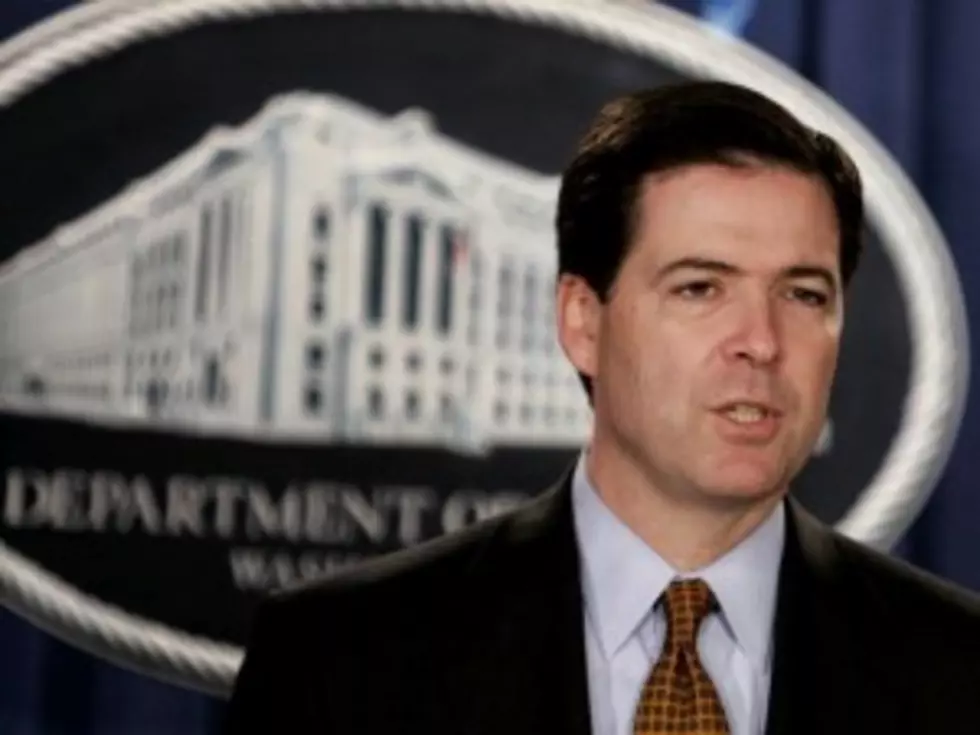![Gulf Residents To Get Extra $64M For Spill Claims [VIDEO]](http://townsquare.media/site/385/files/2012/04/102080751.jpg?w=980&q=75)
Gulf Residents To Get Extra $64M For Spill Claims [VIDEO]
The Justice Department says more than $64 million will be paid to about 7,300 people and businesses whose claims with BP's $20 billion compensation fund were shortchanged or wrongfully denied after the 2010 oil spill in the Gulf of Mexico.
The ruling comes on the 2nd anniversary of the spill.
The department announced Thursday that an independent audit of the Gulf Coast Claims Facility found "significant errors" in its processing of claims.
The auditor also found claimants who were erroneously overpaid. The department says the GCCF isn't trying to to recover those overpayments.
The GCCF, led by Kenneth Feinberg, paid out more than $6 billion to more than 220,000 claimants over nearly two years after the blowout of BP's Macondo well spawned the nation's worst offshore oil spill.
A court-supervised administrator has taken over the claims process from the GCCF.
2 years later: What's latest on Gulf oil spill?
Two years have passed since the April 20, 2010, blowout of BP's Macondo well triggered an explosion on the Deepwater Horizon drilling rig in the Gulf of Mexico, killing 11 workers and spawning the nation's worst offshore oil spill.
After several attempts to cap the well failed, engineers finally halted the flow of oil after more than 85 days, but not before an estimated 206 million gallons of crude spilled. The oil soiled fragile wetlands, stained beaches, killed wildlife and closed vast areas of the Gulf to commercial fishing for time.
A series of government probes have spread out the blame for the disaster among London-based BP PLC, rig owner Transocean Ltd. and other companies involved in the doomed drilling project. But plenty of questions remain about the spill's long-term environmental effects.
Here are some questions and answers about the current state of the Gulf Coast's tourism, oil and gas and fishing industries, of the region's environment and of efforts to resolve spill-related litigation:
Q: WHAT IS THE STATUS OF THE OIL SPILL LITIGATION AND JUSTICE DEPARTMENT INVESTIGATIONS?
A: On Wednesday, BP and a team of plaintiffs' attorneys presented a federal judge in New Orleans with the proposed terms of a class-action settlement that would resolve more than 100,000 claims by people and businesses who blame economic losses over the spill. They're asking the judge to give preliminary approval to the deal that would be one of the largest class-action settlements ever. BP PLC estimates it will pay about $7.8 billion to resolve these claims, but the settlement doesn't have a cap. The agreement doesn't resolve any claims by the Gulf states or the Justice Department, which launched civil and criminal probes following the spill.
Q: HOW HAS BP RESPONDED TO THE SPILL?
A: BP has repeatedly said it accepts some responsibility for the spill and will pay what it owes, while urging other companies to pay their share. The company created a $20 billion fund to resolve many claims out of court. The Gulf Coast Claims Facility paid out more than $6 billion from the fund before a court-supervised administrator took over the claims process on March 8. BP says it has spent more than $22 billion on spill response expenses, including more than $8.1 billion in payments to people, businesses and government entities.
Q: WHAT HAS THE GOVERNMENT AND OIL INDUSTRY DONE TO IMPROVE SAFETY IN OFFSHORE DRILLING?
A: A presidential commission that investigated the Deepwater Horizon disaster says the Interior Department, which oversees offshore drilling, has taken a series of steps to improve safety and protect the environment from another spill. The commission says the industry also has made improvements, including installation of capping stacks that can be used if there's another deep-water well blowout in the Gulf. But the group's commissioners have expressed disappointment that Congress hasn't done more to improve drilling safety.
Q: WHAT IS THE STATE OF THE GULF FISHING INDUSTRY?
A: All of the Gulf of Mexico, except for a few spots in Louisiana's coastal bays hit hardest by the spill, is open for recreational and commercial fishing. But fishermen say they are struggling to return to the harvest levels they saw before the BP spill and, more ominously, warn that many species seem to have been hurt by the spill. The state and federal government say Gulf seafood is now being tested more than it's ever been and that it's safe to eat.
Q: WHAT ARE SCIENTISTS FINDING?
A: Millions of dollars are being poured into scientific research looking at what has happened to the Gulf since the spill. Many of the findings are not known yet because they're part of a secret legal process state and federal agencies are doing to assess how much the oil spill cost in environmental damage. Independent scientists, though, are reporting that they have found oil damage or the presence of oil in a variety places — deep-sea corals, bait fish in Louisiana, reef fish like red snapper, mangrove shrubs and in oysters. Although the damage is not as bad as first feared, scientists say the picture of the Gulf is not as rosy as it may have seemed just a year ago.
Q: IS THERE ANY OIL LEFT?
A: Most of the 200 million gallons of oil that spewed into the Gulf from BP's out-of-control well is no longer in the environment after it evaporated, dissipated or was cleaned up. But there is an unknown amount that remains. Scientists say lots of oil sits on the sea floor of the Gulf and oil, in the form of tar balls or weathered oil, can be found washing up on beaches. There also is oil in Louisiana's marshes that remains in those places hit hardest when oil washed ashore — particularly Barataria Bay and around the mouth of the Mississippi River.
Q: HAS THE GULF COAST'S TOURISM INDUSTRY REBOUNDED?
A: The spill dealt a severe blow to tourism-driven businesses along the Gulf Coast. A June 2011 report prepared for the Louisiana Office of Tourism says lost visitor spending in the state was expected to total $153 million through 2013. But the tourism industry has rebounded over the past two years. BP says it has paid $150 million to tourism organizations in Alabama, Florida, Louisiana and Mississippi.
More From New Jersey 101.5 FM

![Grilling Gone Wrong – Top 5 BBQ Fails [NSFW- Language]](http://townsquare.media/site/385/files/2012/05/BBQ-Fail1.png?w=980&q=75)

![9/11/2001: On The Air [AUDIO]](http://townsquare.media/site/385/files/2012/02/1161079.jpg?w=980&q=75)





